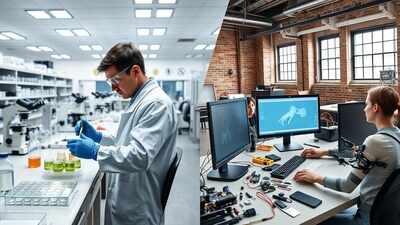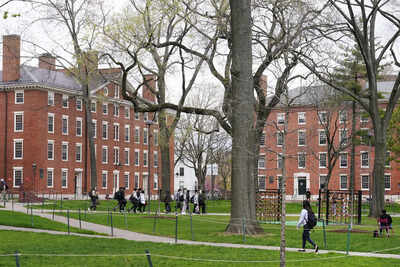As healthcare technology accelerates across the globe, students are increasingly drawn to two interdisciplinary fields at the cutting edge of innovation: biotechnology and biomedical engineering. Both promise high-impact careers, but they offer very different routes into the world of health, research, and technology. For students aspiring to shape the future of medicine, either through genetic breakthroughs or life-saving devices, the decision between these two degrees is more crucial than ever.
A matter of focus: Biology vs. engineering
At their core, biotechnology and biomedical engineering approach healthcare from distinct directions. Biotechnology focuses on the manipulation of biological systems. Students in this field typically study molecular biology, genetics, biochemistry, and microbiology, with applications ranging from drug development and vaccine design to agricultural innovations and synthetic biology. Much of the work is lab-based and research-oriented, often continuing into master’s and PhD programs.Biomedical engineering, on the other hand, blends engineering principles with medical sciences to design and improve healthcare technology. From prosthetics and imaging systems to robotic surgery and wearable health monitors, biomedical engineers are trained to apply physics, mechanics, electronics, and data analysis to solve clinical problems. The work is more application-heavy and often involves collaboration with hospitals, device manufacturers, and health startups.
Industry connections and real-world application
Industry partnerships play a major role in shaping student experience and employability in both fields, but the nature of these collaborations varies.Biotechnology programs tend to align closely with pharmaceutical companies, biotech startups, and research institutes. In India, institutions like IISc and IITs often work with vaccine developers and genomics labs, while global giants like Pfizer and Genentech actively recruit from top research universities abroad.Biomedical engineering degrees, meanwhile, maintain strong connections with medical device companies and hospitals. Students frequently gain hands-on exposure through internships and clinical testing projects. Institutions like MIT, Stanford, ETH Zurich, and several IITs have active biomedical tech labs supported by companies such as GE Healthcare, Medtronic, and Siemens Healthineers.While biotechnology excels in early-stage research and long-term scientific innovation, biomedical engineering offers more immediate, industry-facing career options that translate directly into healthcare delivery.
Global outlook: Where are the jobs?
The global demand for both biotechnology and biomedical engineering graduates continues to rise, but the geography of opportunity differs.The United States remains a dominant force in both sectors. Its pharmaceutical hubs drive biotech employment, while its thriving med-tech industry supports a large biomedical workforce. Germany, Switzerland, and the UK have also emerged as strong players in biopharma and healthcare engineering, with structured pipelines between universities and industry. In Asia, China and Singapore have invested heavily in both biotech parks and medical innovation labs.In India, biotechnology careers are closely linked to pharma companies, vaccine producers, and agritech firms. Biomedical engineering is also gaining traction, particularly in hospitals and private healthcare chains adopting AI, robotics, and digital diagnostics.Popular job titles for biotech graduates include research scientist, molecular biologist, bioprocess analyst, and clinical researcher. Biomedical engineering graduates, meanwhile, often work as clinical engineers, device designers, rehabilitation engineers, or AI-healthcare specialists.
Choosing the right fit
For students, the right choice depends on interest and aptitude. Biotechnology is ideal for those passionate about life sciences, genetics, and research-driven careers in pharma or lab settings. Biomedical engineering is better suited for those who enjoy physics, problem-solving, and designing tangible technologies that improve patient care.Both degrees are innovation powerhouses, but they innovate in different ways. Biotechnology works at the cellular and molecular level to transform how diseases are understood and treated. Biomedical engineering turns those discoveries into real-world solutions, machines, devices, and systems that save lives.In a world where healthcare needs are growing more complex, both fields offer not just opportunity but purpose. Whether you see yourself decoding DNA or building the next generation of diagnostic tools, the future of medicine needs both minds in the room.TOI Education is on WhatsApp now. Follow us here.






